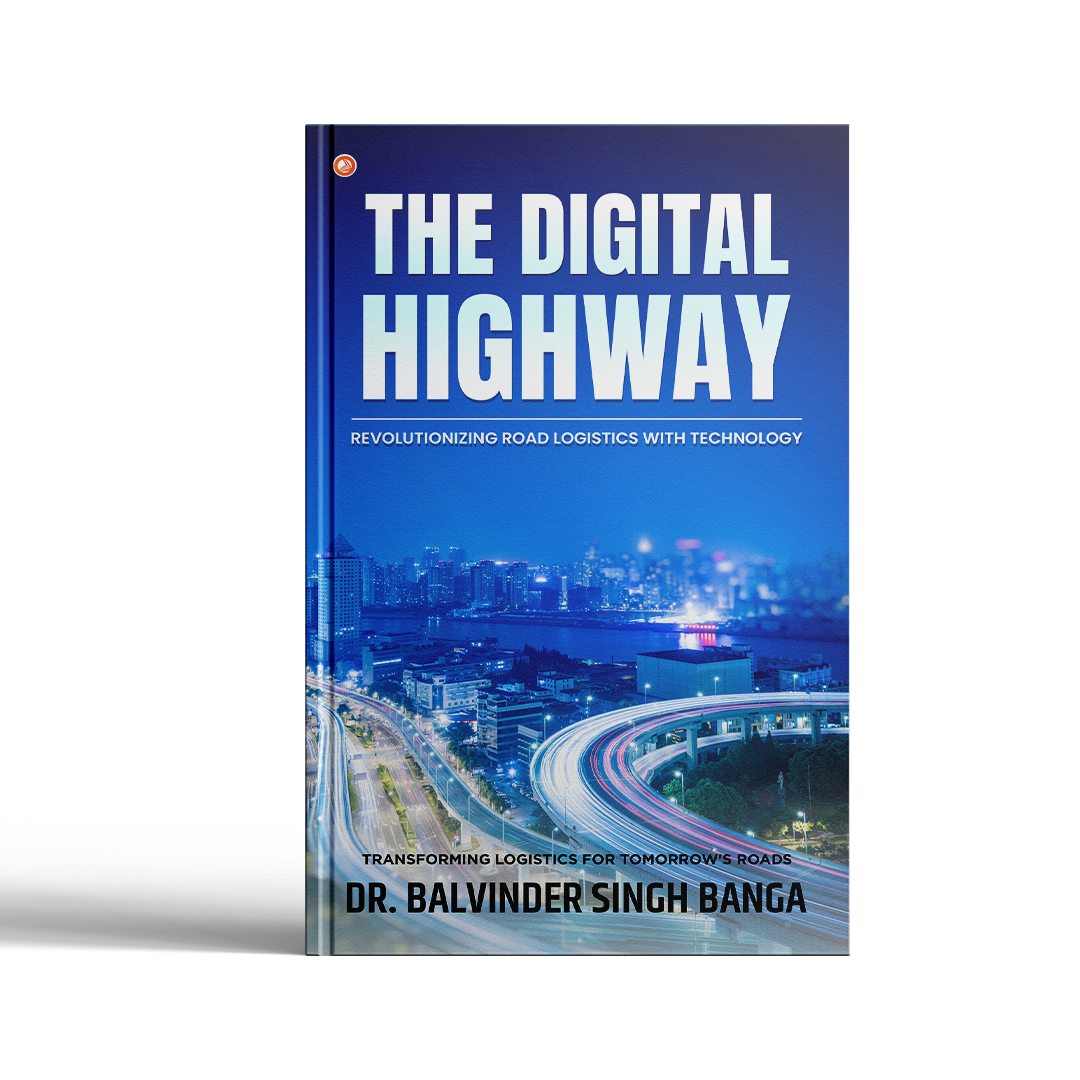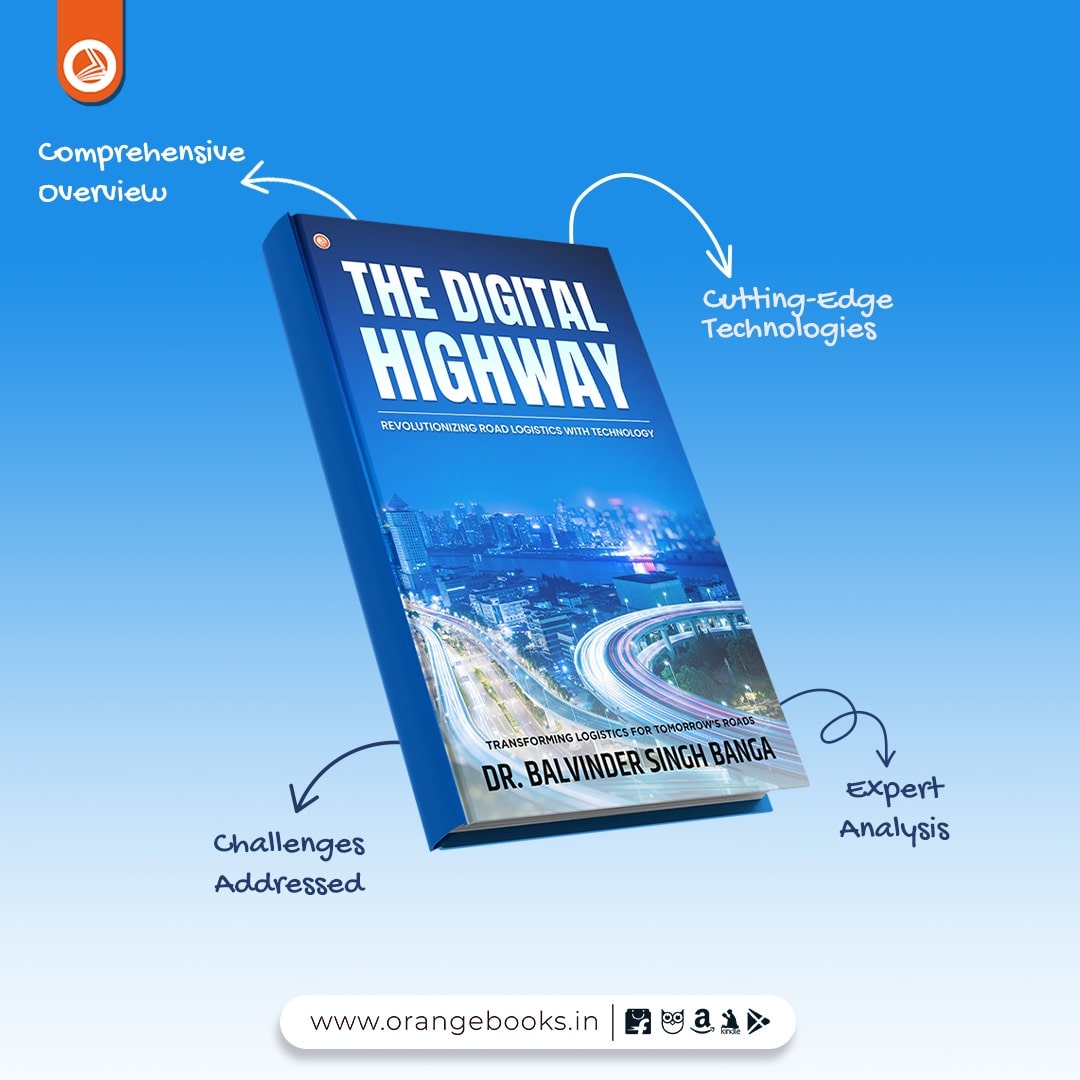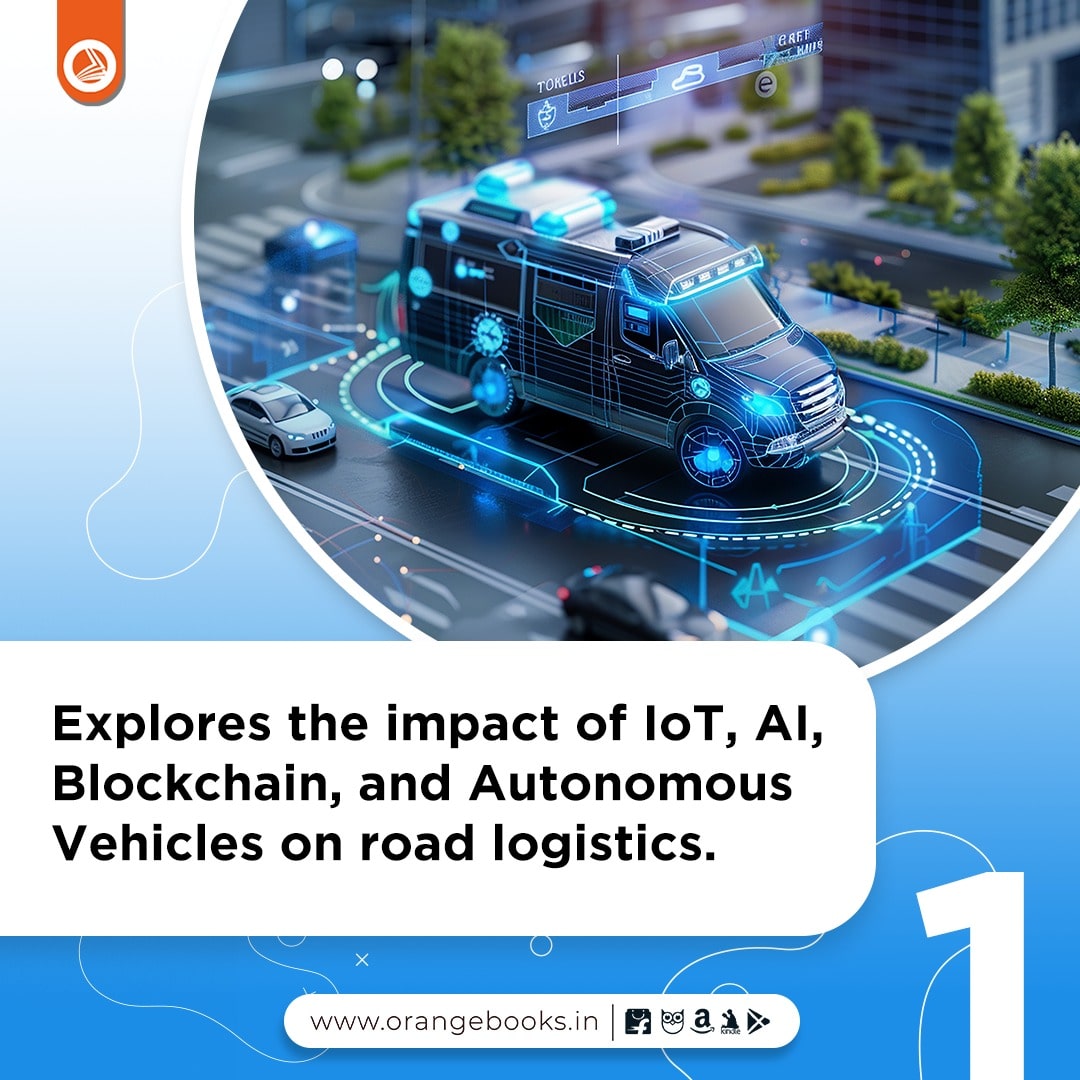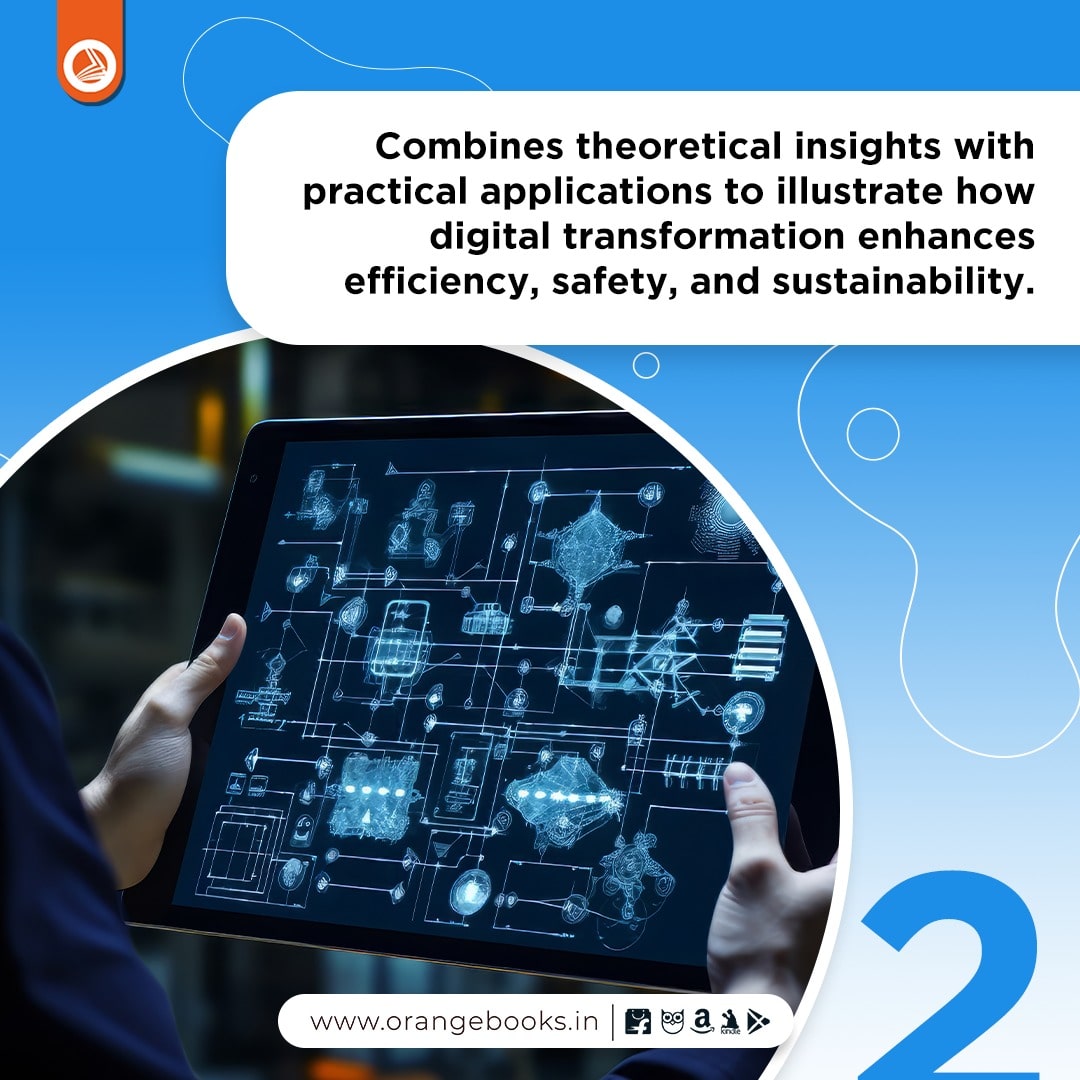- October 5, 2024
Dr. Balvinder Singh Banga Talks About His Book “The Digital Highway”
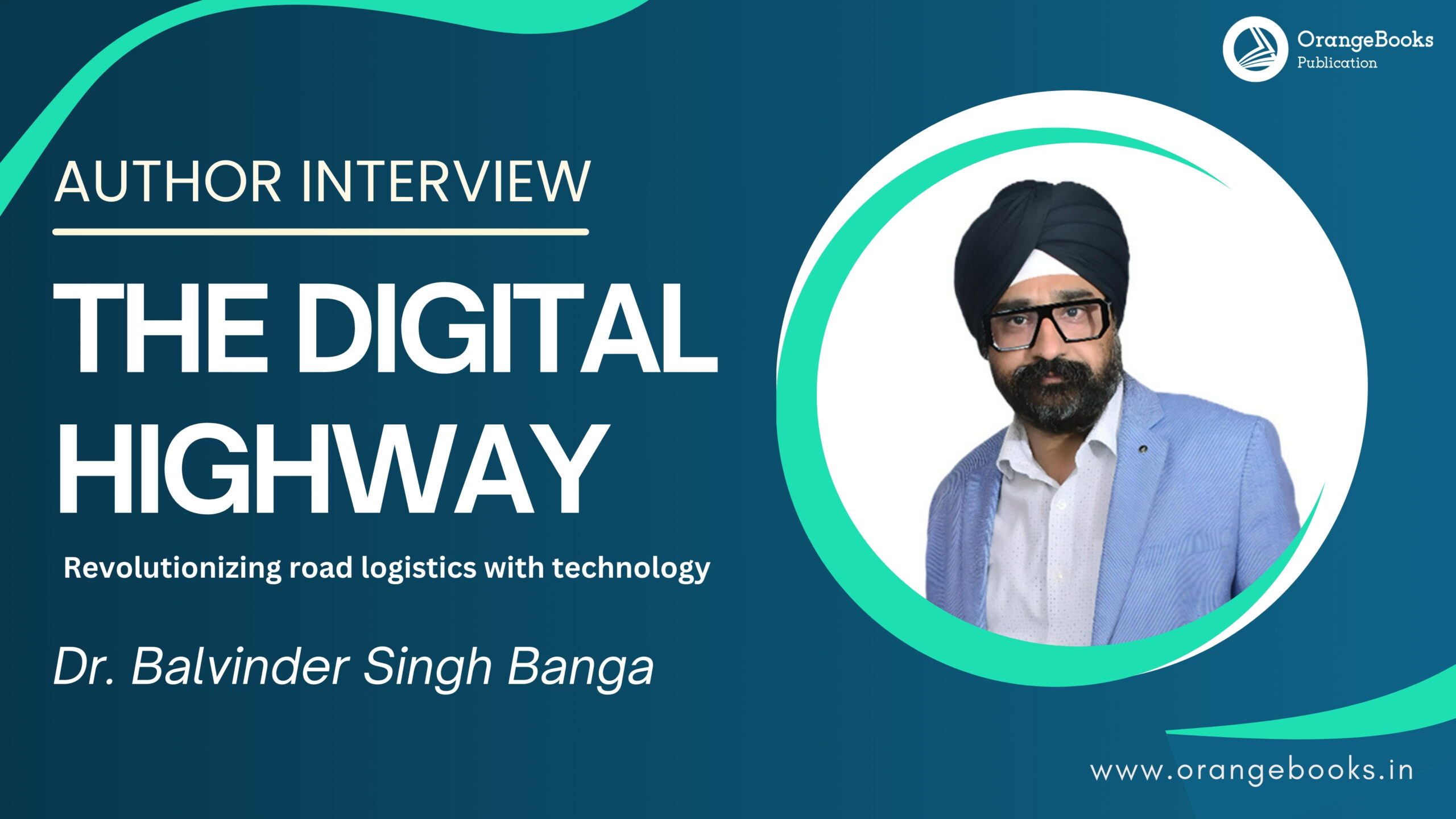
About the Author:
Dr. Balvinder Banga, an accomplished Chief Information Officer and author of “The Digital Highway: Revolutionizing Road Logistics with Technology.” With over 25 years in logistics and a Doctorate in Business Management, Dr. Banga is a visionary in optimizing supply chain operations. Through insightful storytelling, he showcases the transformative potential of technology in revolutionizing road transportation logistics. His leadership drives innovative initiatives, unlocking new business avenues and enhancing customer experiences. Embark on a transformative journey through the global supply chain with Dr. Banga, where innovation meets practicality.
Exclusive interview with the author
Q: What Inspired You To Write This Book?
A:I was inspired to write this book by my deep passion for the logistics industry and my desire to explore how technology is reshaping road transportation. With over 25 years of experience, I’ve witnessed firsthand the challenges and opportunities within the sector. I wanted to share insights on how digital innovation can drive efficiency, sustainability, and growth. The goal was to provide a comprehensive guide for industry professionals and curious readers alike, showcasing the transformative potential of technology in revolutionizing logistics and paving the way for a more connected and efficient global supply chain
Q: Can You Tell Us About The Book?
A: “The Digital Highway: Revolutionizing Road Logistics with Technology” is a comprehensive exploration of how technology is transforming the road transportation and logistics industry. The book delves into the critical role that trucking plays in global commerce, connecting urban centers and remote areas alike. Through engaging storytelling and expert analysis, it highlights the challenges faced by the industry, from navigating difficult terrains to managing complex supply chains. The book also explores the impact of cutting-edge technologies such as AI, IoT, and automation on logistics, offering insights into how these innovations are driving efficiency, sustainability, and growth. Additionally, it discusses the importance of sustainable practices and regulatory trends that are shaping the future of the industry. Whether you’re an industry professional or simply curious about the world of logistics, this book provides valuable insights into the forces shaping the future of road transportation, making it a must-read for anyone interested in the dynamic world of logistics.
Q: What Does The Title Mean?
A: The title “The Digital Highway: Revolutionizing Road Logistics with Technology” symbolizes the transformative journey of the road logistics industry as it navigates through the digital age. The term “Digital Highway” reflects the integration of advanced technologies—such as AI, IoT, and automation—into the traditional logistics and transportation processes. This digital evolution is reshaping how goods are moved, tracked, and managed across vast networks, much like a highway connects different regions. The title captures the essence of this transformation, emphasizing the pivotal role of technology in revolutionizing road logistics and paving the way for a more efficient, connected, and sustainable future.
Q: What Did You Learn When Writing The Book?
A:While writing “The Digital Highway,” I gained a deeper appreciation for the complexities and intricacies of the road logistics industry. I learned how profoundly technology is transforming every aspect of logistics, from operational efficiency to sustainability. Researching and analyzing various innovations reinforced my understanding of the critical role that digital solutions play in overcoming industry challenges and driving future growth. Additionally, writing the book highlighted the importance of adaptability and forward-thinking in staying competitive in this rapidly evolving sector. Ultimately, it was a rewarding journey that broadened my perspective on the potential of technology to revolutionize logistics.
Q: Was The Character Inspired By A Real Person?
A: “The Digital Highway: Revolutionizing Road Logistics with Technology” is a non-fiction book, there isn’t a fictional character involved. However, the insights in the book are inspired by real people and experiences within the logistics industry. The challenges faced by truckers, the strategies employed by logistics managers, and the innovations driven by industry leaders are all drawn from real-life scenarios. These individuals, who work tirelessly to keep global supply chains moving, served as the inspiration behind the narratives and case studies presented in the book. Their dedication and resilience are at the heart of the story I wanted to tell.
Q:How Long Does It Take You To Write A Book?
A:The time it takes to write a book can vary significantly depending on several factors, including the complexity of the topic, the amount of research required, and the writing process itself. For “The Digital Highway: Revolutionizing Road Logistics with Technology,” it took about a year from initial concept to final manuscript. This included extensive research, drafting, revising, and refining the content to ensure it was both informative and engaging.
Q:Where Do You Get Your Information Or Ideas For Your Books?
A:I draw my information and ideas from a combination of extensive industry experience, in-depth research, and real-world observations. For “The Digital Highway: Revolutionizing Road Logistics with Technology,” I leveraged over 25 years of experience in the logistics and supply chain sector, giving me firsthand insights into the challenges and opportunities within the industry. Additionally, I conducted thorough research, including reviewing the latest technological advancements, trends, and case studies in road logistics. I also engaged with industry experts, colleagues, and thought leaders to gather diverse perspectives and ensure that the content was both accurate and relevant. Real-world examples and case studies were a significant source of inspiration, as they provided tangible evidence of how technology is transforming the logistics landscape. By combining these elements, I was able to craft a book that not only explores current industry practices but also offers forward-looking insights into the future of road transportation logistics.
Q: How Important Is Research To You When Writing A Book?
A: Research is absolutely vital when writing a book, especially in non-fiction genres like logistics and technology. It forms the foundation of the content, ensuring that the information presented is accurate, credible, and up-to-date. For “The Digital Highway: Revolutionizing Road Logistics with Technology,” research was crucial in understanding the latest trends, technologies, and challenges within the industry. Thorough research helps in providing real-world examples, supporting claims with data, and offering readers valuable insights. It also allows the author to explore different perspectives, ensuring that the book is well-rounded and informative. Ultimately, research is what transforms an idea into a comprehensive, authoritative resource that readers can trust and learn from.
Q:Do You Believe A Book Cover Plays An Important Role In The Selling Process?
A:Absolutely, a book cover plays a crucial role in the selling process. It’s often the first thing a potential reader notices, and it sets the tone for what they can expect from the book. A well-designed cover can capture attention, convey the essence of the book’s content, and make a strong first impression that encourages readers to pick it up. For non-fiction books like “The Digital Highway: Revolutionizing Road Logistics with Technology,” the cover should reflect the subject matter while appealing to the target audience. It should communicate professionalism, authority, and the book’s central theme—technology transforming road logistics. In a crowded marketplace, a compelling cover can make a significant difference in attracting readers and driving sales.
Q: Where Do You Get Your Greatest Ideas For Writing?
A: My greatest ideas for writing often come from a blend of real-world experiences, industry challenges, and emerging trends in technology and logistics. Working in the logistics sector for over 25 years has exposed me to the daily intricacies and complexities of the industry, which serve as a rich source of inspiration. I find that the most compelling ideas arise from observing how technology can address these challenges and drive innovation. Additionally, I stay informed by reading extensively, attending industry conferences, and engaging with thought leaders. These activities help me identify gaps in existing knowledge and spot opportunities where new ideas can make a meaningful impact. Often, a combination of curiosity, practical experience, and a desire to contribute to the industry leads to the most powerful ideas for my writing.
This book is published by OrangeBooks Publication. All rights are reserved with the author & the publisher.


